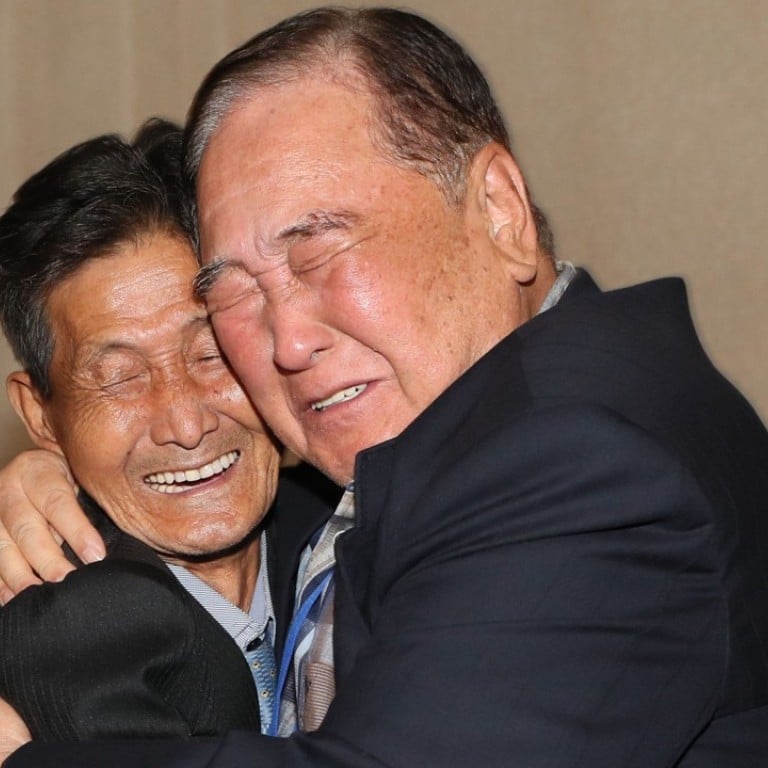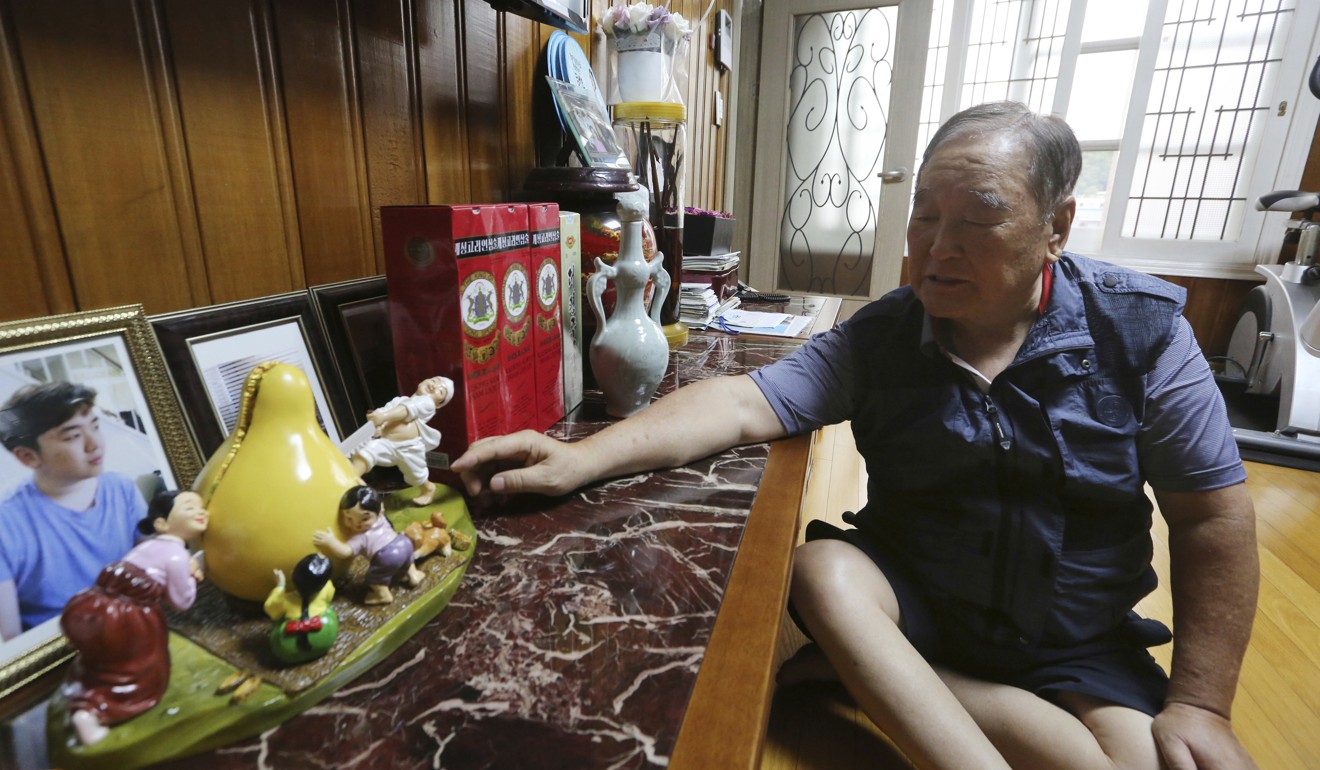
After nearly 70 years apart, Korean brothers reunited for three days
Ham Sung-chan did not expect any of the three brothers he’d left in North Korea to be alive. If they weren’t killed by the war or North Korea’s devastating 1990s-era famine, he thought they would have died of old age
Ninety-three-year-old Ham Sung-chan’s eyes widen with excitement as he describes the shock and euphoria of reuniting with his baby brother, now 79, during three days of family reunions in North Korea.
But there’s a deep and bitter regret, too, and it stems from a simple bit of maths: after nearly 70 years of a separation forced by a devastating 1950-53 war that killed and injured millions and cemented the division of the Korean Peninsula into North and South, Ham and his North Korean brother only got a total of 12 hours together.
Ham was one of the 197 South Koreans who visited North Korea’s scenic Diamond Mountain resort from last Monday to Wednesday for rare reunions with relatives in the North. The heart-wrenching images of elderly Koreans embracing each other for the last time continued in a second set of reunions involving around 300 South Koreans that took place from Friday to Sunday.
“There’s a large sense of dejection that has set in,” said Ham. “The time we spent together was too short, way too short. It wasn’t a week; it wasn’t 10 days. Just after we met, we had to depart.”
Born in eastern North Korea, Ham was in his 20s, selling fish and cosmetics in the South when war broke out in June 1950 and prevented him from returning to his hometown.
Ham thought his mother was still in the North until he met her in the South in 1983, several years before her death. But he did not expect any of the three brothers he’d left in North Korea to be alive. If they weren’t killed by the war or North Korea’s devastating 1990s-era famine, he thought they would have died of old age.
The time we spent together was too short, way too short. It wasn’t a week; it wasn’t 10 days. Just after we met, we had to depart
One of his brothers, however, 79-year-old Ham Dong Chan, was frail but still alive and eager to meet his oldest brother.
The day before the reunions, Ham, his wife and younger daughter drove to a resort in the South Korean coastal town of Sokcho where the South Korean participants spent a night before crossing into North Korea by bus.
On Monday morning, Ham’s bus crossed into North Korea. The first meetings took place at about 3pm. Ham’s heart trembled as he walked with his wife and daughter toward the banquet hall where the North Korean relatives were waiting at white tables.
As Ham approached a table marked with the number 90, a slim, deeply wrinkled man in a suit and tie sprang from his seat. The brothers embraced tightly, smiling widely, tears streaming down their faces.
“He yelled, ‘Brother, it’s me!’” Ham said. “I recognised him right away. He was still that skinny, quiet kid. Maybe our bloodlines pulled us together.”
For four hours, Ham and his brother mostly talked about family, explaining to each other when their parents and brothers had died.
On Tuesday, the brothers had deeper conversations over lunch in a room at a nearby hotel, away from North Korean government watchers and the dozens of South Korean reporters covering the event.
Dong Chan, who came to the meetings with his 72-year-old wife, had thought that his oldest brother was dead. He did not know that his mother had made it to the South, remarried there, and lived for decades.

Dong Chan said he had been hospitalised in Pyongyang to treat migraines when he received word from North Korean authorities that his brother in South Korea was looking for him.
“He told the authorities that it must be a different person with the same name because he was so convinced that I had died,” Ham said. “When North Korean officials asked again, this time mentioning the names of our parents, he was shocked.”
Ham tried hard to be cheerful during his last lunch with Dong Chan on Wednesday. He laughed, clinked glasses of beer with his brother and shouted “good health is the best!”
Ham promised Dong Chan that he will be the first South Korean to apply for a North Korean visa if relations improve to the point where cross-border travels are allowed. Dong Chan told Ham that North Korean leader Kim Jong-un’s relationship with South Korean President Moon Jae-in was so close that the Koreas will be able to unify in three years.
Later, outside the hotel, Ham, still in tears, waved both hands from inside the bus as his brother came out to see him off. The bus slowly rolled out of the resort and headed back to South Korea.
“I had told myself, ‘I won’t cry, I won’t cry,’” Ham said. “But I exploded with tears.”

